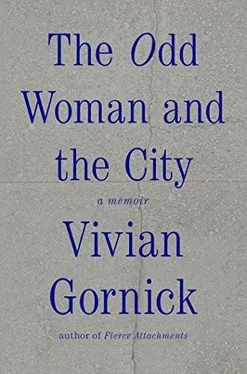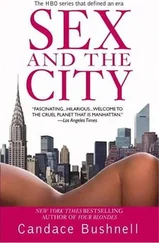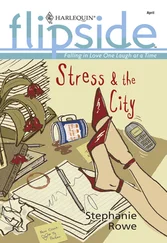I grew up and moved downtown but sure enough, nothing turned out as expected. I went to school but the degree did not get me an office in midtown. I married an artist but we lived on the Lower East Side. I began to write but nobody read me above Fourteenth Street. For me, the doors to the golden company did not open. The glittering enterprise remained at a distance.
* * *
Among my friends, I am known for my indifference to acquisition. People make fun of me because I seem to want nothing; neither do I know the name of anything, nor can I readily differentiate between the fake and the genuine, the classy and the mediocre. It isn’t high-minded disinterest, it is rather that things have always sent me into a panic; a peasantlike discomfort with color, texture, abundance — glamour, fun, playfulness — is the cause of my unease. All my life I’ve made do with less because “stuff” makes me anxious.
Leonard has developed a style of living that seems the direct obverse of my own, but, truth to tell, I think it the mirror image. Overflowing with Japanese prints, Indian rugs, eighteenth-century furniture upholstered in velvet, his place feels like a set of museum rooms of which he is the curator. I see that he is filling in the physical surround as desperately as I am not. Yet he’s never been at home in his apartment any more than I am in mine; he, too, needs to feel concrete beneath his feet.
* * *
After I graduated from college, New York meant Manhattan, but for Leonard, who’d also grown up in the Bronx, it remained the neighborhoods. From the time I first knew him — more than thirty years ago now — he walked the streets as I never had, into Brooklyn, Queens, Staten Island. He knew Sunnyside, Greenpoint, Red Hook; Washington Heights, East Harlem, the South Bronx. He knew the meaning of a shopping street in Queens with half the stores boarded up, a piece of Brooklyn waterfront restored, a garden lot in Harlem full of deranged-looking flowers, a warehouse on the East River converted to a Third World mall. He knew which housing projects worked and which were a devastation. And it wasn’t just the streets he knew. He knew the piers, the railroad yards, the subway lines. He had Central Park and Prospect Park by heart. He knew the footbridges on the East River; the ferries, the tunnels, the beltways. He knew Snug Harbor and City Island and Jamaica Bay.
He often reminded me of the street-urchin protagonists in postwar Italian movies: those handsome, ragged children of Rossellini’s who imprint on Rome by knowing the city inside out. Leonard always looked like that to me when we took one of our long hikes through the boroughs: hungry, as only a working-class kid can be, for information; the kind of information that makes the ground beneath your feet yours. With him as my guide, the neighborhoods spread out for miles in all directions, often looking to my uninformed eye like wasteland until I began to see them as Leonard did: an incomparable sea of ghettos forever bleeding new life into a rectangle of glamour and prosperity.
On these treks of ours, the character of time-and-space often changed as we walked. The concept of “hours” evaporated. The streets became one long ribbon of open road stretched out before us, with nothing to impede our progress. Time expanded to resemble time in one’s childhood, when it seemed never to end, as opposed to time now: always scarce, always pressing, always a fleeting marker of one’s emotional well-being.
* * *
At a New Year’s party, Jim comes rushing toward me. Sarah nods and turns away. A year ago I was tight with one, two years ago with the other. Tonight I realize I haven’t seen him in three months, her in six. A woman who lives three blocks from me appears, her eyes shimmering. “I miss you!” she breathes wistfully, as though we’re lovers in wartime separated by forces beyond our control. Yes, I nod, and move on. We’ll embrace happily, me and all these people: not a glance of grievance, not a syllable of reproach among us. And, indeed, there is no call for grievance. Like pieces in a kaleidoscope that’s been shaken, we’ve all simply shifted position in the pattern of intimate exchange. Many of us who not so long ago were seeing one another regularly will meet now more often by accident than by design: in a restaurant, on the bus, at a loft wedding. Ah, but here’s someone I haven’t seen in years. Suddenly, a flare of intensity and we’re meeting once a week for the next six months.
I am often reminded of the tenement friendships in my childhood, circumstantial one and all. Round, dark-eyed women, filled with muted understanding for the needs of the moment. What difference did it make if the next-door neighbor was called Ida or Goldie when you needed someone to lend you ten bucks or recommend an abortionist or nod her head during an outburst of marital rage? It mattered only that there was a next-door neighbor. These attachments, as Sartre might have put it, were contingent rather than essential.
As for us: Never before in history has so much educated intelligence been expended on the idea of the irreplaceable — the essential — self; and never before has aversion to the slightest amount of psychological discomfort allowed so many to be treated as the contingent other.
* * *
The third-century Roman writer Caius understood that his many difficulties with friendship began with an inability to make peace with himself. “No man has a right to expect friendship from others,” he wrote, “who is not a friend to himself. This is the first great duty of mankind, to be friends to themselves. There are thousands who are not only hostile to themselves, but who thwart the best intentions of others to serve them, and yet they are the persons from whom may be heard the loudest complaints that ‘there is no such thing as a friend in the world!’”
* * *
Samuel Taylor Coleridge worshipped a definition of friendship that embodied an ideal that could be traced back to Aristotle. Living at a time when persons of sensibility yearned for communion of the spirit, Coleridge suffered from its frequent failure to materialize in friendship; but the pain did not threaten his faith, not even when he lost the friendship that defined all others.
Coleridge and William Wordsworth met in 1795 when they were, respectively, twenty-three and twenty-five years old. Wordsworth — grave, thin-skinned, self-protective — was, even then, steadied by an inner conviction of his own coming greatness as a poet; Coleridge, on the other hand — brilliant, explosive, self-doubting to the point of instability — was already into opium. Anyone except them could see that they were bound to come a cropper. In 1795, however, a new world, a new poetry, a new way of being, was forming itself, and at that moment, both Wordsworth and Coleridge, each feeling the newness at work in himself, saw proof of its existence reflected in the person of the other.
The infatuation lasted a little more than a year and a half. At the end of that time, the chaos within Coleridge doubled its dominion; the pride in Wordsworth stiffened into near immobility. The person each had been for nearly two years — the one who had basked in the unbroken delight of the other — was no more. It wasn’t exactly that they were returned to the persons they had been before; it was only that never again would either feel his own best self in the presence of the other.
One’s own best self. For centuries, this was the key concept behind any essential definition of friendship: that one’s friend is a virtuous being who speaks to the virtue in oneself. How foreign is such a concept to the children of the therapeutic culture! Today we do not look to see, much less affirm, our best selves in one another. To the contrary, it is the openness with which we admit to our emotional incapacities — the fear, the anger, the humiliation — that excites contemporary bonds of friendship. Nothing draws us closer to one another than the degree to which we face our deepest shame openly in one another’s company. Coleridge and Wordsworth dreaded such self-exposure; we adore it. What we want is to feel known , warts and all: the more warts the better. It is the great illusion of our culture that what we confess to is who we are.
Читать дальше












